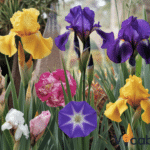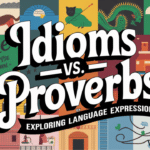Have you ever hesitated while writing the plural form of “journey”? You’re not alone. This grammatical dilemma is a common area of confusion for many English speakers and writers.
Let’s dive deep into the world of “journeys” versus “journies,” exploring the correct plural form, usage examples, and the reasons behind this frequent stumbling block in English grammar.
The correct plural form of “journey” is “journeys.” This follows the standard English grammar rule for words ending in “-ey.” To form the plural, we simply add an “s” to the end of the word. This proper plural applies to many similar words, such as “monkey” (monkeys), “valley” (valleys), and “turkey” (turkeys).
Here’s a quick reference table for words ending in “-ey” and their plural forms:
| Singular | Plural |
|---|---|
| Journey | Journeys |
| Valley | Valleys |
| Monkey | Monkeys |
| Donkey | Donkeys |
| Trolley | Trolleys |
| Honey | Honeys |
| Turkey | Turkeys |
| Jockey | Jockeys |
| Chimney | Chimneys |
| Volley | Volleys |
Understanding the Confusion
The confusion between “journeys” and “journies” stems from a broader language issue in English. Many words that end in “y” form their plurals by changing the “y” to “ie” and adding “s.” For example, “baby” becomes “babies,” “lady” becomes “ladies,” and “story” becomes “stories.”

This rule applies when the “y” is preceded by a consonant. However, when the “y” is preceded by a vowel, as in “journey,” we simply add an “s” without changing the “y.” This subtle distinction is often the root of the grammatical problem.
Also Know Which is Correct: Piece or Peice?
Everyday Usage and Examples
Understanding the correct forms of “journey” in various contexts can help maintain accuracy in your writing and speech. Let’s explore some examples of everyday usage:
Our family takes two exciting journeys each year for vacations. Professional lives often involve multiple journeys of growth and change. Students embark on educational journeys that shape their futures. From childhood to adulthood, we go through numerous journeys of self-discovery.
These examples demonstrate how the word “journeys” is commonly used in both literal and metaphorical senses.
Spiritual Journeys and Personal Growth
The concept of spiritual journeys is deeply ingrained in many cultures and religions. These inner journeys or soul voyages often represent personal transformation and self-discovery.

Many pilgrims undertake spiritual journeys to holy sites around the world. Meditation retreats offer participants transformative journeys into their own minds. The hero’s journey in literature often mirrors our own spiritual journeys through life.
These mystical tours of the self can be both challenging and rewarding, offering profound insights and personal growth.
You Might Like This: Tomorrow Or Tommorrow: Which One Is Correct?
Migratory Journeys in Nature
In the animal kingdom, migratory journeys play a crucial role in survival and reproduction. These seasonal travels showcase some of nature’s most impressive feats.

Arctic terns make incredible journeys from the Arctic to the Antarctic and back each year. Monarch butterflies embark on multi-generational journeys across North America. Whales undertake long journeys between feeding and breeding grounds.
These animal journeys remind us of the remarkable adaptations in nature and the importance of preserving migration routes.
To illustrate the diversity of journeys in different contexts, here’s a table:
| Context | Example Sentence |
|---|---|
| Physical Travel | Their journeys took them across five continents. |
| Career | She’s had many journeys in her professional life. |
| Education | Learning a new language is one of life’s most rewarding journeys. |
| Personal Growth | Therapy can lead to profound inner journeys of self-discovery. |
| Literature | The characters’ journeys reflect the author’s own experiences. |
| Spiritual | Pilgrimages are spiritual journeys of faith and devotion. |
| Scientific | Space probes embark on journeys to the far reaches of our solar system. |
| Historical | The journeys of early explorers shaped our understanding of the world. |
| Metaphorical | Writing a novel is a journey of creativity and perseverance. |
| Life Stages | Parenthood is filled with countless small journeys and discoveries. |
The Importance of Correct Usage
While it might seem minor, using the right plural form of “journey” is important for several reasons. Correct usage demonstrates attention to detail and language proficiency.
Using the proper form avoids confusion and ensures your message is understood. Accurate grammar enhances your credibility as a writer or speaker.
Common Misspellings and How to Avoid Them
The spelling “journies” is a common misspelling that many people make. To avoid this frequent typo, remember these tips: Visualize the correct spelling: “journ-eys”. Remember the vowel rule: “e” before “y” means just add “s”. Practice writing it correctly to build muscle memory.
Here’s a table of words often confused with “journeys” and their correct spellings:
| Incorrect | Correct |
|---|---|
| Journies | Journeys |
| Journeies | Journeys |
| Jorneys | Journeys |
| Journys | Journeys |
| Journeis | Journeys |
| Jurneys | Journeys |
| Journees | Journeys |
| Journyes | Journeys |
| Jornies | Journeys |
| Journeyes | Journeys |
Major Synonyms for Journey
To enrich your vocabulary, here are some principal synonyms for “journey”: Voyage, Expedition, Trek, Odyssey, Pilgrimage, Quest, Venture, Excursion, Wandering, Sojourn. Using these synonyms can add variety to your writing and help you express different nuances of travel and experience.
Grammar Rules for Y-Ending Words

To help retain accuracy in your use of “journey” and similar words, it’s important to understand the rules for pluralizing words ending in “y”. Here’s a table illustrating some exceptions to the “-y” to “-ies” plural rule:
| Singular | Plural | Rule |
|---|---|---|
| Journey | Journeys | Vowel before “y” – just add “s” |
| Key | Keys | Vowel before “y” – just add “s” |
| Boy | Boys | Vowel before “y” – just add “s” |
| Day | Days | Vowel before “y” – just add “s” |
| Toy | Toys | Vowel before “y” – just add “s” |
| Spray | Sprays | Vowel before “y” – just add “s” |
| Tray | Trays | Vowel before “y” – just add “s” |
| Essay | Essays | Vowel before “y” – just add “s” |
| Prey | Preys | Vowel before “y” – just add “s” |
| Hay | Hays | Vowel before “y” – just add “s” |
Mastering the Plural of Journey
Understanding the correct plural form of “journey” is more than just a matter of spelling; it’s about mastering a fundamental aspect of English grammar. By remembering that “journeys” is the proper plural, you can avoid a common misspelling and maintain accuracy in your writing and speech.
Whether you’re describing physical travels, spiritual journeys, or metaphorical passages through life, using the correct form “journeys” will ensure your message is clear and professional. This small but significant detail can make a big difference in how your writing is perceived.
As you continue on your own journeys through language and communication, remember that each grammatical problem solved is a step towards greater fluency and confidence.
The path to mastering English may be filled with challenges, but it’s also immensely rewarding. So, embrace these learning opportunities, and let your linguistic journeys be as enriching as the physical, spiritual, and personal journeys that shape our lives.

Emma Carter is an experienced blogger at Vocablarified. She enjoys helping people expand their vocabulary and improve their language skills. With a warm and approachable writing style, Emma makes learning new words fun and accessible. When she’s not writing, she loves reading books and discovering new phrases to share with her readers. Emma is passionate about making language learning an enjoyable journey for everyone.







